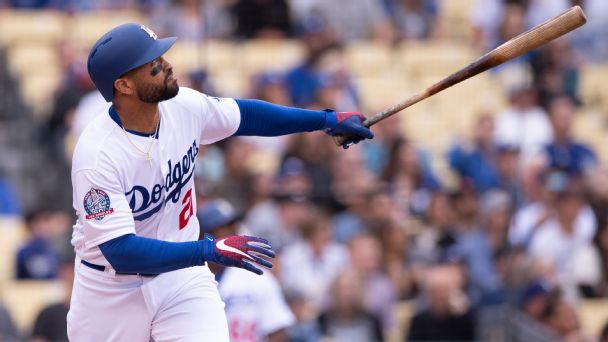When Run Differential Doesn’t Say All: Los Angeles Dodgers

This post is one in a series on team’s who’s run differential has proved a poor indicator of actual results. Read our posts examining the run differential of the Colorado Rockies, Seattle Mariners, and Washington Nationals, here.
Generally, a team’s win-loss record and its run differential correlate positively.
As of August 31, the league leaders in run differential were Boston and Houston, at an astounding +215. As we might expect, their record reflects this. The Red Sox were 50 games above .500 as of this date, best in Major League Baseball. Not to be outdone, the Astros were 29 wins above .500.
Other contenders in the MLB have differentials to match their records, or vice-versa. The New York Yankees (+153), Cleveland Indians (+140), Chicago Cubs (+111), Atlanta Braves (+97), Arizona Diamondbacks (+85), and Oakland A’s (+81) are all leading their respective divisions or are otherwise currently Wild Card qualifiers.
Of course, there are always outliers. Just look at the 2007 Arizona Diamondbacks, who managed a 90 – 72 record and an NL West crown despite a -22 run differential. In 2018, other teams possess records which seem to defy what we’d anticipate given their run differentials. Let’s look at some squads which have either exceeded or fallen short of expectations:
Los Angeles Dodgers
Win-loss record as of (8/31): 73 – 62
Expected win loss-record: 82 – 53
For a team like the Los Angeles Dodgers with the third highest payroll for 2018, you might expect them to be running away with the NL West. Instead, while still owing a winning record, the Dodgers are fighting for their playoff lives. A year removed from a trip to the World Series, LA is far from a lock to even return to the postseason.
How did they get here?
The Dodgers, in spite of a +126 run differential, find themselves in line with the Colorado Rockies in the standings. Los Angeles has 25 blown saves on the season. Among contenders, only the Rockies have more (26), and their bullpen woes are no secret. Kenley Jansen has missed time, but even so, he has blown four saves a season after failing to close the door but once.
Other Dodgers relievers have fared yet worse in this respect. JT Chargois’s attempts have been an exercise in futility (0-for-4). Scott Alexander hasn’t been great in this capacity either (2-for-5). Erik Goeddel, Tony Cingrani, Pedro Baez, Zac Rosscup, Adam Liberatore, Yimi Garcia, and Brock Stewart, like Chargois, have all been credited with blown saves without any successful saves to show for it. Simply put, it’s been a mess for the Los Angeles Dodgers to try to close games this year. What’s more, it’s been even worse when Jansen has been unavailable.
Where do they go from here?
It’s telling that ESPN rates the Dodgers’ chances to make the playoffs above those of either the Arizona Diamondbacks or the Colorado Rockies. Simply put, LA has been one of the unluckiest teams in baseball when comparing the team’s actual record to its expected win-loss record. Presumably, Kenley Jansen is healthy and can be close to what he has been in past seasons. With a starting lineup loaded with talent (even without Corey Seager), the Los Angeles Dodgers have ample time and opportunity to go on a run and capture the National League West crown.
Also read our posts examining the run differential of the Colorado Rockies, Seattle Mariners, and Washington Nationals, linked to here.
















